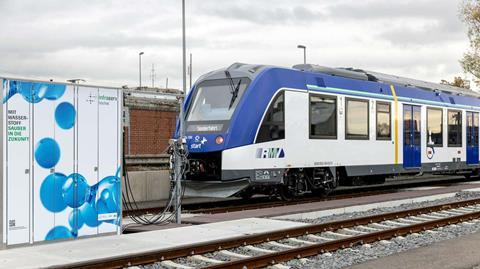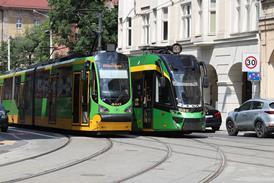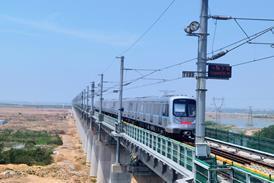
GERMANY: Ongoing technical problems with a fleet of hydrogen-powered iLint Alstom multiple-units on part of the Taunus network has prompted the operator to replace them with Lint41 diesel multiple-units on route RB15 between Bad Homburg and Brandoberndorf. The change in traction will take effect progressively from January 2025.
The replacement diesel fleet formed of 14 Type VT648.4 and two VT648.3 Lint41 trainsets is being leased from a pool of Deutsche Bahn rolling stock, an arrangement which has been agreed until the end of 2025. Services will continue to be operated by Regionalverkehre Start Deutschland, a Deutsche Bahn subsidiary, on behalf of Rhein-Main Verkehrsverbund; RSV began operating the Taunus rail network in December 2022.
The first of a 27-strong iLint hydrogen-powered fleet for RMV was delivered in time for entry into service in December 2022, with the rest of the trains due to be operational by June 2023. The trains were originally allocated to four routes: RB11 Frankfurt-Höchst – Bad Soden, RB12 Frankfurt – Königstein, RB15 Frankfurt – Brandoberndorf and RB16 Bad Homburg – Friedberg. RMV has confirmed that Route RB12 will continue to be operated with iLint hydrogen-powered trainsets.
RMV says that Alstom has undertaken to overhaul the relevant components of the iLint vehicles so that they can be returned to use and operate reliably on the Taunus network ‘beyond 2025’.
Chairman of the RMV board Ulrich Krebs said that ‘by reverting to proven diesel trains we will achieve the most important thing ― a reliable timetable for our travellers on the Taunus routes’. Accepting that ‘diesel trains no longer have a future’, he added that ‘it is all the more regrettable that Alstom has done a disservice to novel forms of traction with this series of failures over two years’.
RMV Chief Executive Prof Knut Ringat noted that Alstom had undertaken to bear additional costs relating to the repairs and the cost of leasing the replacement fleet. He also recalled that ‘we finally achieved the reliability that our passengers demanded in the summer’, but said that it did not last because the trains ‘were again the victims of technical problems from late summer onwards’. He reported that Alstom had ‘taken ad hoc measures such as increasing production of important spare parts and introducing additional shifts for workshop staff to ensure that enough vehicles are available by the time the diesel trains start operating’. Finally, he called for the supplier to ‘make intensive use of the coming year to finally ensure the fleet is fit for long-term reliability’.
Alstom said it had reached an agreement with RMV and Start to stabilise operations on route RB15 for a limited period of time by using diesel trains. Hydrogen trains continue to be in service on RB12. Starting in 2025, the iLint fleet will undergo a modernisation programme and be equipped with a new generation of fuel cell to ensure all hydrogen trains can be used reliably in the long term. Once completed the iLints will be be phased back in to replace the temporarily diesel fleet.
Alstom told Railway Gazette International ’despite extensive testing in advance, we must recognise that the use of this technology in daily passenger operations is pioneering for everyone involved and we are facing up to the challenges that need to be overcome when pioneering a new technology. Alstom is and remains the only railway manufacturer with a fully homologated hydrogen fuel cell train in passenger transport, and the cumulative learning will benefit the entire industry in the long run.’




















